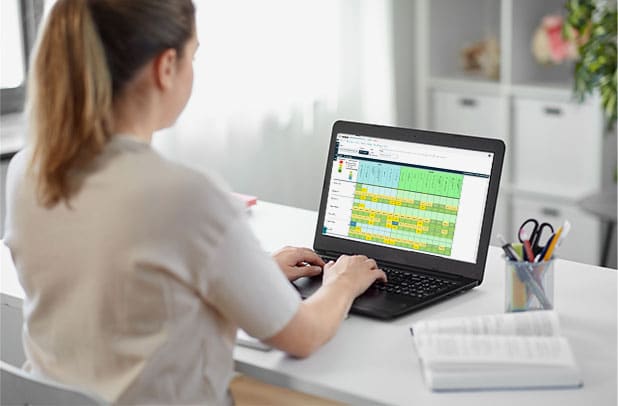Earlier this month, Karen Thompson wrote about the new Senior Designated Mental Health Lead role in schools. The SDMHL is responsible for overseeing a programme of support for student and staff wellbeing.
As school staff, we always prioritise and consider the wellbeing of our students but the heightened focus on teacher and school staff wellbeing is relatively new. The Teacher Wellbeing Index compiled by Education Support found in 2020 that 62% of education professionals considered themselves to be stressed. The UK’s Health and Safety Executive reported in 2018 that education professionals had the highest levels of work related stress, depression and anxiety across all professions. So how are schools going to address this?
As with all school based initiatives, leaders benefit from examples of best practice which act as a springboard for creative and bespoke packages. So what should be considered when planning a programme of support for staff mental health and wellbeing?
Listen
First and foremost, it is imperative that senior leaders listen to their staff. We can spend a lot of time researching wellbeing initiatives only to implement them and find that there is low staff take-up or apathy. Any initiative should be led by staff need and desire. Staff surveys can be useful to glean feedback. If done using Google Forms or Survey Monkey they can be incredibly quick and easy to complete. However, some staff will feel that a survey is just another item added to their workload. How about holding a cake and a coffee session one lunch time and having questions up on the board for staff to write their answers? Where issues of mental health are concerned, it can be easier for staff to be honest if they are not in a face to face situation being asked direct questions. A certain level of anonymity makes people feel at ease but still gives the leadership team an idea of what the prevailing issues are. If you are interested in finding out how staff feel about their role and autonomy, it can be useful to engage in 360 degree reviews of leaders. We all grow as a result of feedback and it gives staff the opportunity to address management styles that are impacting on their mental health without feeling that they have caused offence.
Workload Management
The NHS Talking Toolkit is a great resource to start thinking about ways to improve mental health and wellbeing in the team. Top of their list is workload management. Find out from staff what the biggest stresses are in terms of workload. Help staff to prioritise tasks and ensure that they understand the things which can wait. Leadership teams could consider adopting a no-marking policy to reduce workload significantly. The NEU summarised the thinking in this area well in their article in December 2021 https://neu.org.uk/advice/your-rights-work/contracts-and-working-hours/workload-and-working-time/workload-advice. Avoid any tasks which copy information from one format to another. In cases where staff are experiencing a period of mental ill health, could they be offered part-time working hours? Is there capacity to give extra time out of whole class teaching such as delivering interventions or working on policy documents? Schools can also consider how they manage planning to ensure that it is impactful for the children without being unnecessarily time consuming for teachers. A report of the Independent Teacher Workload Review Group in March 2016 gave great suggestions, not only for how schools can address the planning dilemma but also how the DfE and Ofsted can support schools to reduce teacher workload through their policies and practices.
Work Life Balance
You might be able to offer teachers PPA time at home or organise cover so that teachers can have a day out of class for report writing. Having a system where the computer network shuts down in the evening at a reasonable time can support staff to safeguard their free time. It is important to talk to staff about a time which is reasonable as some teachers would feel additional stress if they had to complete their work by 4pm as opposed to 6pm. Schools could consider continuing with online parents evening which were a necessity during the pandemic. These are strictly time limited and parents who do not show up on time will naturally have a shorter appointment rather than causing all appointments to overrun.
Job Satisfaction
It is important to consider those elements of work which give the most work satisfaction. Staff need to feel valued and feel that their knowledge and expertise is recognised. Creating Subject Matter Experts within your cluster of schools can give all staff the chance to share the things they are successful with and pick up ideas for developing practice. Consider opportunities to give everyone some leadership duties. Include senior MDSAs in the interviews for new lunchtime staff. They will be working alongside the new recruits and know the traits which will be successful. Find teachers who are particularly passionate about a new initiative and give them the training to become a specialist in that area. Ensure that staff are clear about the boundaries and expectations of their job role. What are their duties and what do the leadership team expect to see in terms of output? The most important aspect of conversations around job role tend to be those things that ARE NOT part of the role. Knowing when to say no and signpost to other staff members can reduce stress significantly.
Mental Health
With all of the preventative measures in place, it is important to have robust systems in place for offering and allowing access to mental health services. Schools might have a school counsellor who can offer sessions for staff. Lots of schools buy into a local authority package which offers 6 sessions of free counselling with additional follow up phone calls. Consider arranging Mental Health First Aid training for staff who are passionate in this area. Learning Curve are offering a free Cache Level 2 course which will equip nominated staff with the skills needed to support mental health and make appropriate onward referrals. Do you have any local authority support teachers who can offer professional supervision? Consider starting every SLT meeting with a quick discussion about every member of staff in the team, ensuring that someone from SLT has checked in with them that week and that you have decided a plan of action if someone is going through a difficult time.
Physical Health
Poor physical health can have a profound impact on our mental health that schools must consider ways of supporting staff with this. Some schools buy into a health insurance plan which provides a set number of GP appointments as well as limited counselling sessions. There are various companies offering workplace flu vaccinations in schools. This could be done in a lunch break and really show staff that the leadership team care about their wellbeing. Do you offer access to any sports groups? Schools have successful yoga sessions running after school. Others ask their after school sports club providers to offer boot camp style sessions on an evening. Could leaders in the school set an example by entering a challenge to raise money for charity? How about encouraging the team to join you in a 5k run to raise money for a charity which has a connection with your community? Try going for a lunch time walk and incentivise this by creating a challenge to walk from your home town to Paris. Plan a celebration when you clock up the miles and arrive at the Eiffel Tower.
Fun
As a continuation from Job Satisfaction, staff wellbeing cannot be considered without thinking about making the workplace fun. Teaching is a hugely rewarding career but surveys show that the biggest motivator and factor which keeps people in their roles is the relationships they have with colleagues (Institute of Leadership and Management Study 2020). Leaders could organise a shared lunch once a month where everyone brings a dish and eats lunch in the staffroom with their colleagues. You could buy a karaoke machine for the staffroom and dedicate one Friday a month to karaoke lunch. Nourish a culture where staff joke and have fun with each other. Whether that be dressing up in the silliest outfits for non-uniform days or taking a soft toy from a classroom and leaving clues for staff to find it. You will know for your team what keeps spirits high and injects fun back into the darkest, COVID decimated staff room.
The Education Staff Wellbeing Charter from the DfE is a good place to start with developing practice in the area and signing up to the charter helps staff to understand your commitment to this agenda.
Author: Laura Carpenter










